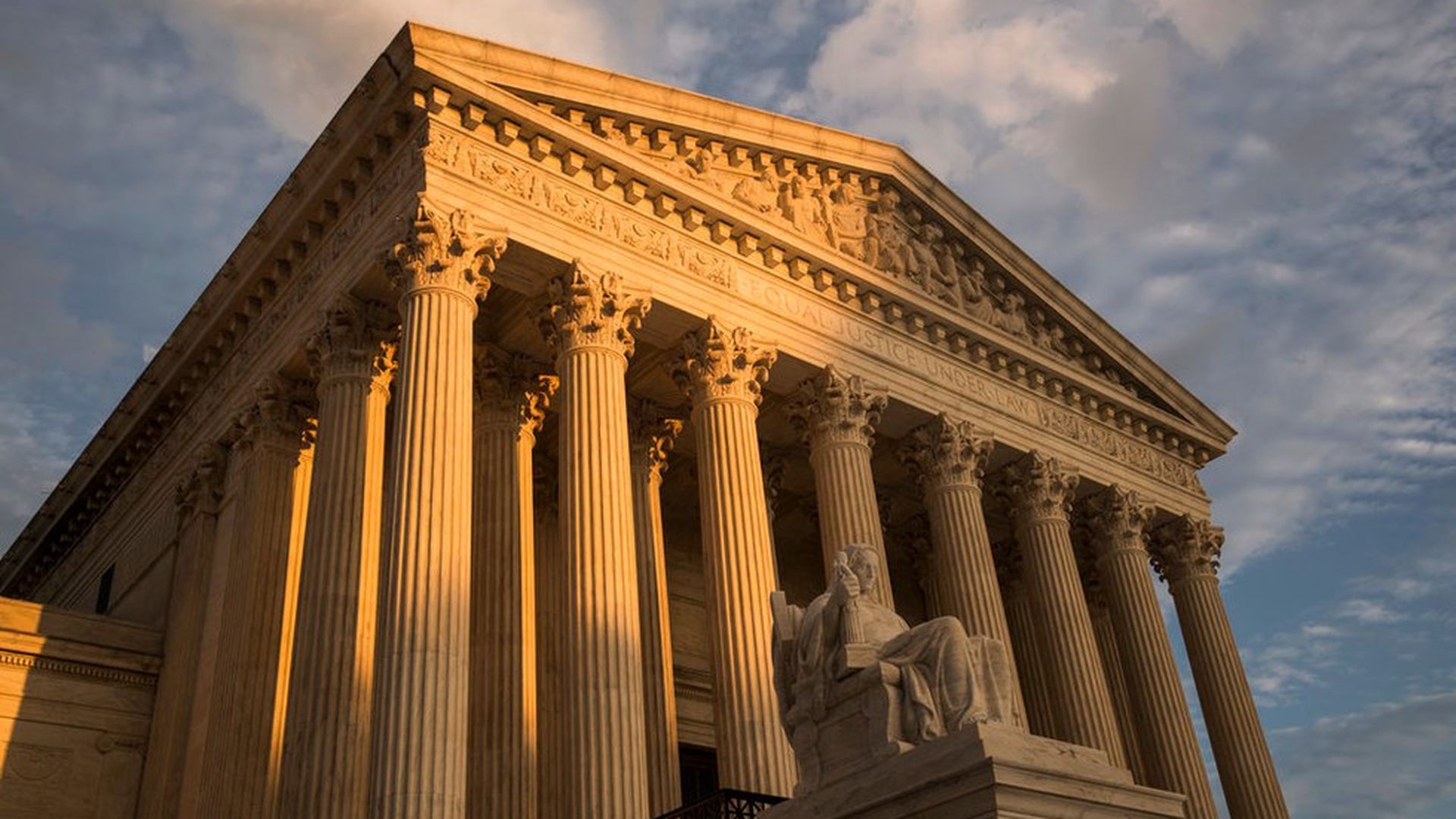SCOTUS is worried about digital privacy, but unsure how far to go
Add Axios as your preferred source to
see more of our stories on Google.

The Supreme Court heard a major case on digital privacy. Photo: Photo: J. Scott Applewhite/AP
In a broad conflict between law enforcement and digital privacy, the Supreme Court seems inclined to come down on the side of privacy. But the justices weren't quite sure how to get there, or how far to go — and those details will have an enormous impact on the future of digital privacy.
The bottom line: The court heard arguments this morning over whether police should be able to track the location of a suspect's cell phone without a warrant. A majority of the justices seemed uncomfortable with that practice and concerned that if they don't pump the brakes now, the government would soon have easy access to access almost every detail of our lives. But they also worried about going too far in the other direction.
"This is an open box — we know not where we go," Justice Stephen Breyer said.
The big picture: The court has said in the past that you don't have a "reasonable expectation of privacy" with information you voluntarily turn over to a third party. And the Justice Department argued this morning that those rulings clearly mean police don't need to get a search warrant before using cell-tower data to retrace a suspect's steps.
The ACLU, on the other hand, argued that police should need a warrant for location data, or at least to collect several days' or weeks' worth of data.
The big question: The court's liberal bloc was solidly on the ACLU's side, and some of the conservative justices also seemed to be looking for narrower limits on warrantless location searches. But today's arguments offered few clear indications of what such a decision might look like, or how aggressively the court might move.
- Justice Sonia Sotomayor wants to revisit the so-called "third party doctrine" altogether. She said today that the American people "want to avoid Big Brother."
- Breyer, a Democratic appointee, asked lawyers to lay out a way the court could rule against law enforcement in this case without also cutting off access to the financial records used to investigate white-collar crime. "Where are we going? Is this the right line? How do we write it?" he asked.
- "I need to know how much existing precedent you want us to overrule, or declare obsolete," Justice Samuel Alito said to the ACLU lawyer arguing against warrantless tracking. The court almost never overturns its own precedents, and Alito suggested it might need to revisit a slew of old cases in order to side with the ACLU here.
- Justice Neil Gorsuch took the proceedings down a specific path that none of his colleagues seemed inclined to follow, but which at the end would have led to a ruling in the ACLU's favor.
Why it matters: Almost everything we do on our smartphones and computers involves transferring data to a third party. And if that alone makes that data available to law enforcement without a warrant, then law enforcement will have a bigger window into the private details of Americans' lives than ever before.
"I don't, but I know most people have the phones in the beds with them … it's an appendage now." — Justice Sotomayor
